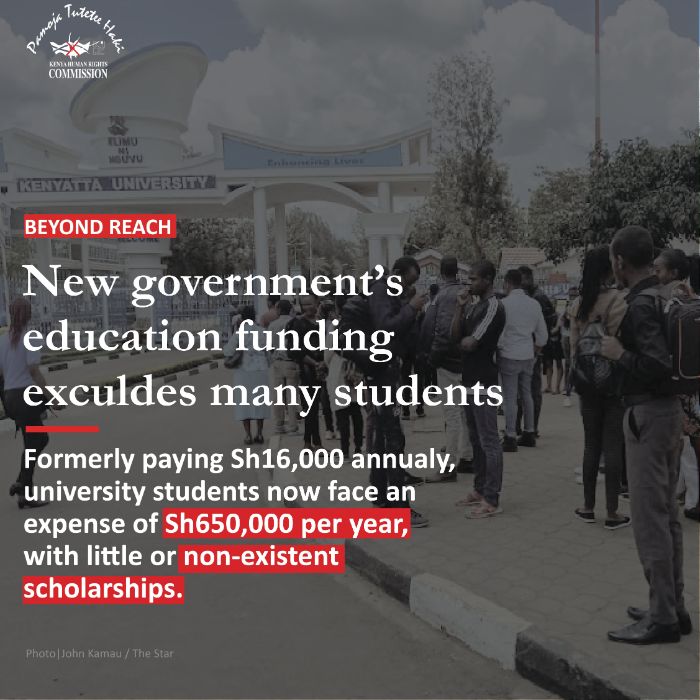The President's hurried and premature roll-out transferred the responsibility of providing education from the state to the parents, many of whom are struggling to keep their children in school.
There must be clarity about selecting universities and Technical and Vocational Education and Training (TVET) courses. Eligible students face prolonged university and college placement delays due to a lack of clear instructions from Kenya Universities and Colleges Central Placement Services (KUCCPS).
Currently, university and TVET courses are associated with higher fees than expected. Previously, government-supported students would pay Sh16,000 per annum for similar classes—and get a loan of up to Sh60,000 yearly. But now they have to part with an average Sh650,000 per annum, all without scholarships. The implication has been students dropping out or avoiding selecting the courses altogether.
Additionally, the criteria used to qualify a study for government support still need to be determined. Knowing which student is vulnerable, very needy, needy, and less needy is challenging, yet these are the government's yardstick in assessing the level of support it will offer students.
Due to technical glitches, only 30 percent of eligible students applied for government scholarships and loans through the Higher Education Fund and Higher Education Loans Board (HELB). The situation has left most students unable to apply for funding and likely locked out of higher education.
Devastatingly, the Ruto regime's system has frustrated brilliant students under 18 from receiving education loans due to their legal status as minors. Before, these students would have easily used their parents' details to get the money.
Furthermore, fresh students encountered challenges with registration fees, accommodation, catering, scholarship materials, and medical security during the reporting and registration phase. The lack of implementable guidelines contributed to this situation.
The Elimu Bora Working Group (EBWG) calls for halting the ill-conceived funding model. We want the country to return to the previous model for continuing and new students and eventually eliminate tuition fees. EBWG wants the government to ensure unhindered university and TVET entry for qualified students and waive registration fees.
Signatories
- Kenya Human Rights Commission (KHRC)
- Uraia Trust
- Elimu Tuitakayo
- Constitution Reforms Education Consortium (CRECO)
- Social Justice Centre Working Group (SJCWG)
- National Students Caucus
- Kenya National Interface Team (KNIT)
- Youth Agenda
- Universities Academic Staff Union (UASU)
- Centre for Education Policy and Climate Justice (CEPCJ)
- Association of Parents with Children with Special Needs
- Education for Africa (EFACO)


